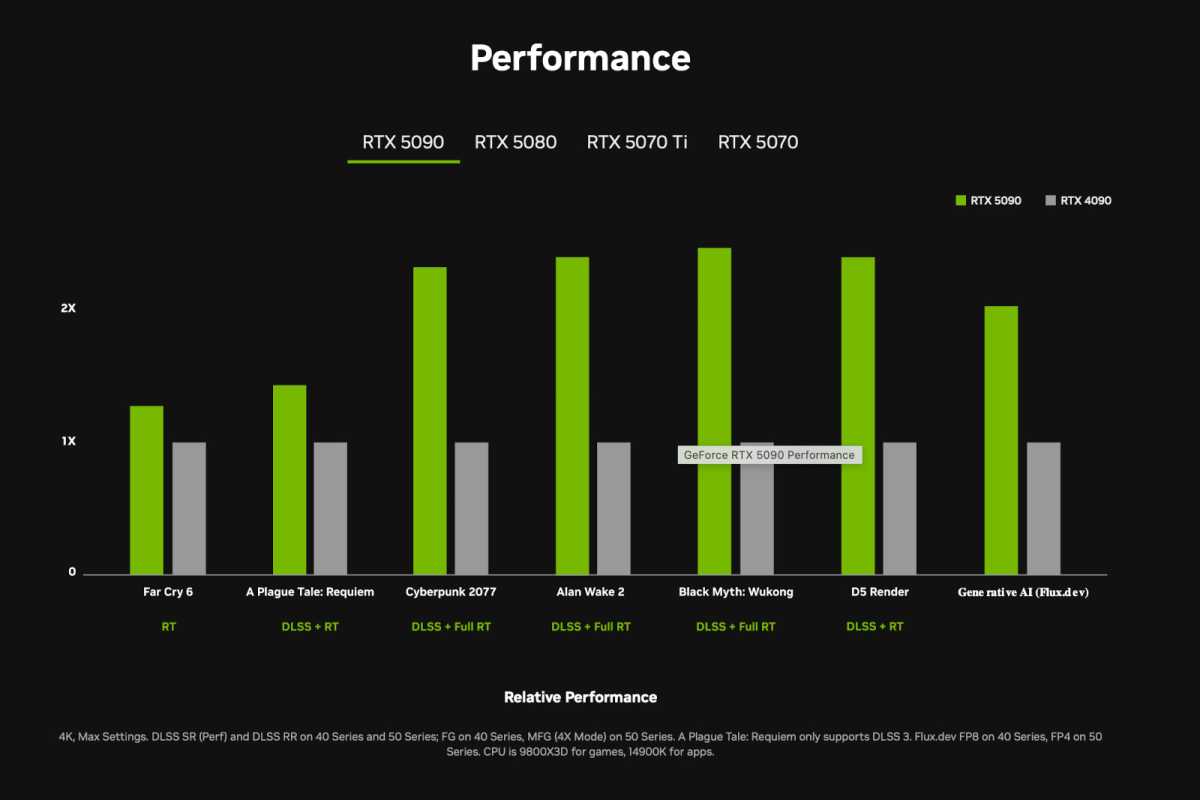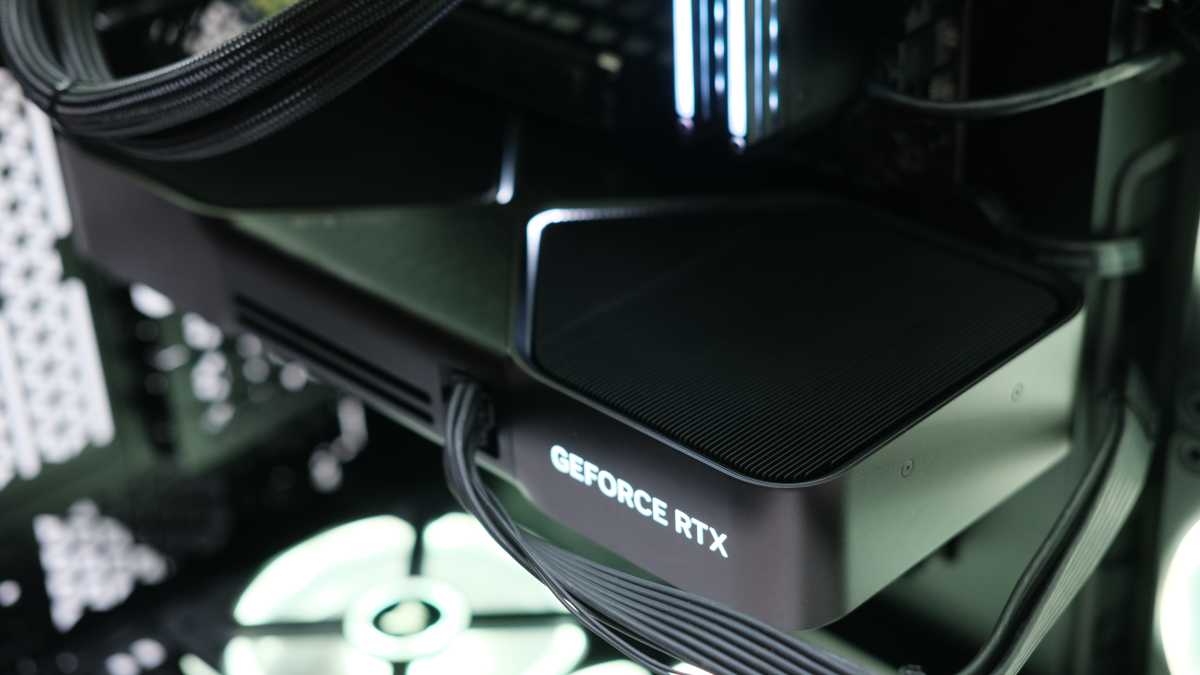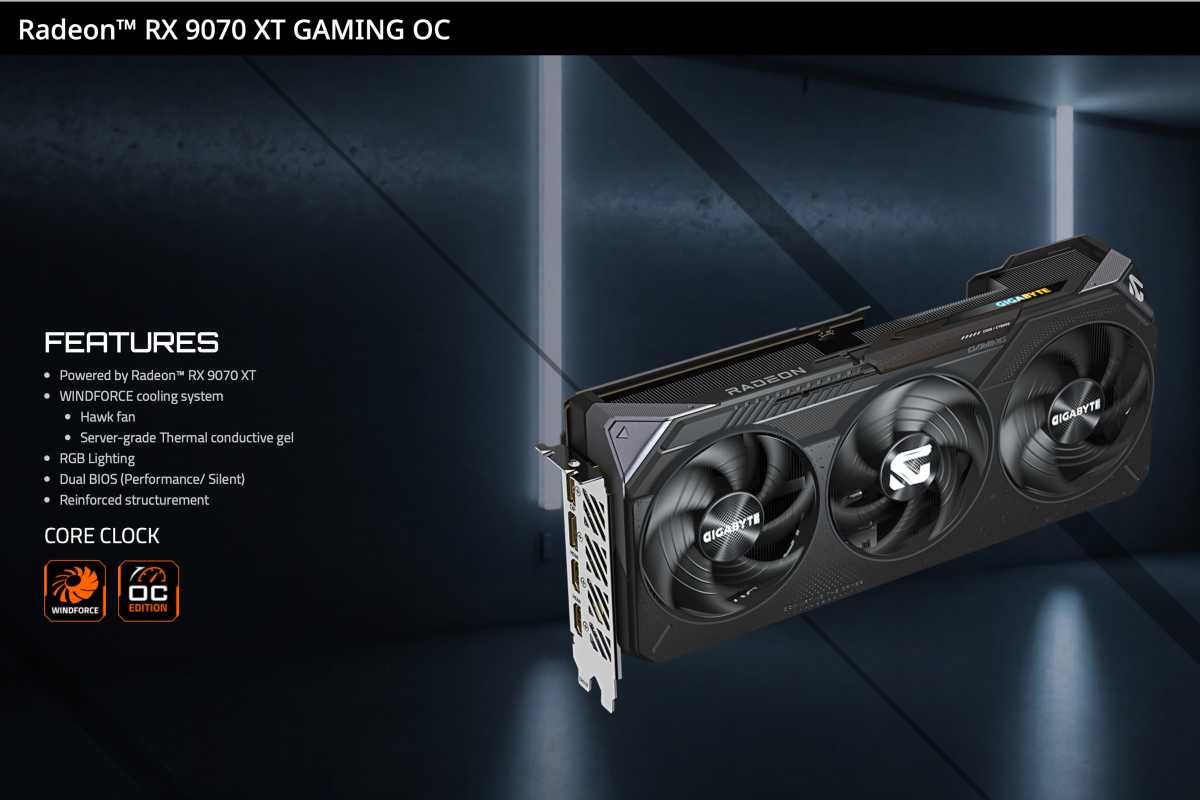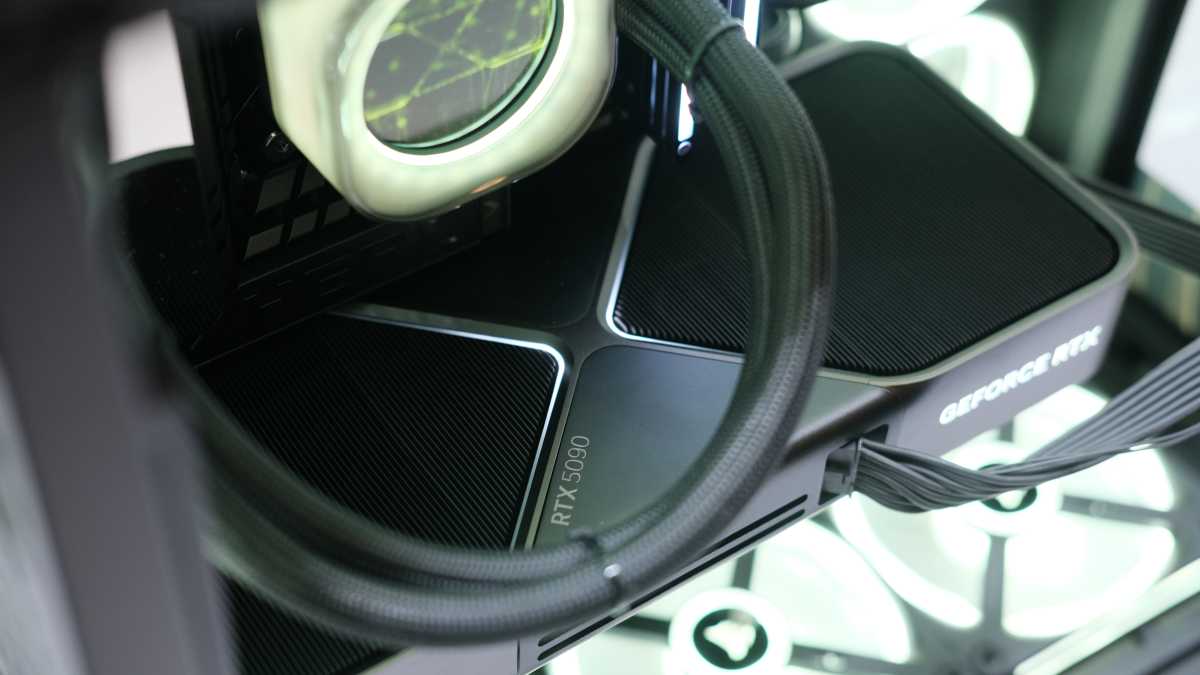CES 2025 was packed with all kinds of techie announcements, but for me the highlight was all the new graphics cards. Nvidia and AMD both played their hands with next-generation products, with some caveats.
Nvidia certainly stole the show, with the GeForce RTX 50 Series announcement serving as the key opening message in CEO Jensen Huang’s keynote speech. AMD was much softer in its talk, with sparse details on its new RDNA 4 graphics cards, resulting in similarly sparse enthusiasm.
Let’s go over what we learned from both companies about their GPUs and where your attention should be in 2025.
The good and the almost good…
Right off the bat, here’s the good news for us: We’re definitely getting some new GPUs, starting with Nvidia’s GeForce RTX 50 Series. The top-dog in that group will be the RTX 5090, featuring a staggering 32GB of fast GDDR7 VRAM. According to Nvidia, it may be as much as twice as fast as the outgoing flagship RTX 4090.
While that’s certainly impressive, Nvidia is likely basing its claims on its DLSS 4 numbers, which feature several new technologies that help it achieve all this. Chief among them is Multi Frame Generation, using the power of AI to reach higher peaks in performance with little to no apparent drawbacks.

Nvidia
Even more impressive is the claim by Nvidia that the new RTX 5070 will have similar performance to the RTX 4090. That’s a bold statement considering that the RTX 5070 will have an MSRP of $549 while the RTX 4090 sold with an MSRP of $1,599. (More on this later, as once again AI is a big factor in these results.)
The high end GPUs — such as the RTX 5070 Ti and RTX 5080 — also look promising, with both having 16GB of GDDR7 VRAM. The RTX 5080 appears to be half of what the RTX 5090 is, both in hardware specs along with its $999 MSRP.
That’s where the good news is. Pricing. The GeForce RTX 5080 has stuck with the revamped $999 price point of its RTX 4080 Super predecessor, a marked improvement over the original RTX 4080’s unpopular $1,199.
The RTX 5070 fares even better at $549, a $50 reduction compared to the current RTX 4070 Super’s $599 price tag. Couple with that a decent performance increase and it’s clearly a good value for the money. The RTX 5070 Ti also sees a price drop to $749, which is good news if you’re shopping in the high end.
But then we have an outlier in the group: the mighty RTX 5090, which climbed 25 percent of the RTX 4090’s price, up to $1,999. Yet while that might seem steep, early rumors pinned the price of the RTX 5090 at well over this amount. We won’t know for sure until we review this GPU, but the price increase could be justified on paper. Not only does it feature a first-ever 32GB of VRAM in a gaming GPU, but the rest of the spec sheet also reads like a superhero comic book. It will be a stellar GPU for not just gaming, but productivity and other workloads, too.

Adam Patrick Murray / Foundry
The new technologies embedded within these GPUs will produce some stunning games in the future. Nvidia’s neural rendering looks very promising, utilizing the the 5th generation tensor cores. Upgraded RT cores will also have a significant impact on ray tracing, something that enthusiast gamers have started to find almost necessary for the most visually pleasing eye candy.
These demanding technologies pair like fine wine with DLSS 4 and Multi Frame Generation, erasing any FPS performance penalties while not impacting visuals to a noticeable degree.
Note: Early performance numbers should be taken with a grain of salt, of course, because Nvidia is showcasing the likes of DLSS 4 and Multi Frame Generation for its new GPUs. We don’t yet have the full context of what performance will be like across most games, especially those that may not support these new technologies.
And the not-so-good…
While Nvidia was busy dropping the mic, Radeon RDNA 4 GPUs were barely touched on by AMD. Details were amiss in AMD’s presentation, and specs for the new products were hard to find. The good news is that we at least have confirmation that GPUs like the Radeon RX 9070 XT will have 16GB of VRAM and will be coming soon.
Even though the company devoted zero air time to the RTX 9070 in its CES keynote, AMD has a lot of positives with AI and RDNA 4 that should help its GPUs perform well. FSR 4 is also a notable technology that will allow AMD to compete with Nvidia’s DLSS 4, although Nvidia does have a head start as far as AI tech in the gaming space.

AMD
AMD has stated in the past that it isn’t chasing the crown for fastest GPU this generation, instead focusing on the mid-to-entry-high-range GPUs that’ll result in more gamers choosing its products. In turn, this will mean there are more developers willing to optimize for their GPUs and their larger base of users. (AMD has previously done well with RDNA 3 GPUs, such as the Radeon RX 7800 XT, bringing some great price-performance to the table in the battle against Nvidia.)
While the strategy is fine, AMD did seem a bit too hush-hush on its new products at CES 2025. Perhaps they wanted Nvidia to fully play their hand, like announcing their intent to launch the $549 GeForce RTX 5070, a product that competes directly in the price range and market that AMD is targeting. The RTX 5090, not so much — unless AMD pulls out a surprise like they did with the RDNA 3-based Radeon RX 7900 XTX a few years ago.
Nvidia vs. AMD in 2025: The takeaway
There’s no doubt that AMD will have some excellent GPUs with RDNA 4, but the optics of a high-profile event like CES 2025 are also important. Even Nvidia, with its massive revenue stemming from data centers and AI, still gave proper attention to its gaming products during their keynote.
Something like this can cause an early mindshare shift with gamers, since we don’t have details aside from a few pictures and sparse information. This fails to build enthusiasm and only gives the nod to Nvidia to bulldoze this generation of graphics cards for enthusiasts.

Adam Patrick Murray / Foundry
To be sure, apart from Nvidia-curated graphs, we don’t know the full details of the GeForce RTX 50 Series and its capabilities. But at least we have some rough ideas to get excited about, along with the all-important pricing that dictates what gamers will ultimately buy.
We would’ve liked to see more info from AMD, even a slight mention in its presentation, to give us a sense of what to expect. Sadly, AMD really the dropped the ball. Only time will tell how much it affects Radeon’s prospects.
Connectez-vous pour ajouter un commentaire
Autres messages de ce groupe

You know about captcha tests, right? The anti-bot checks that can be

Old Faithful is going off again. Acer’s Nitro V is consistently one o

If you’re like me and you consistently forget to turn off your lights

Smart entry locks are the biggest improvement to home security since

Yesterday was Patch Tuesday for February, which means Microsoft relea


